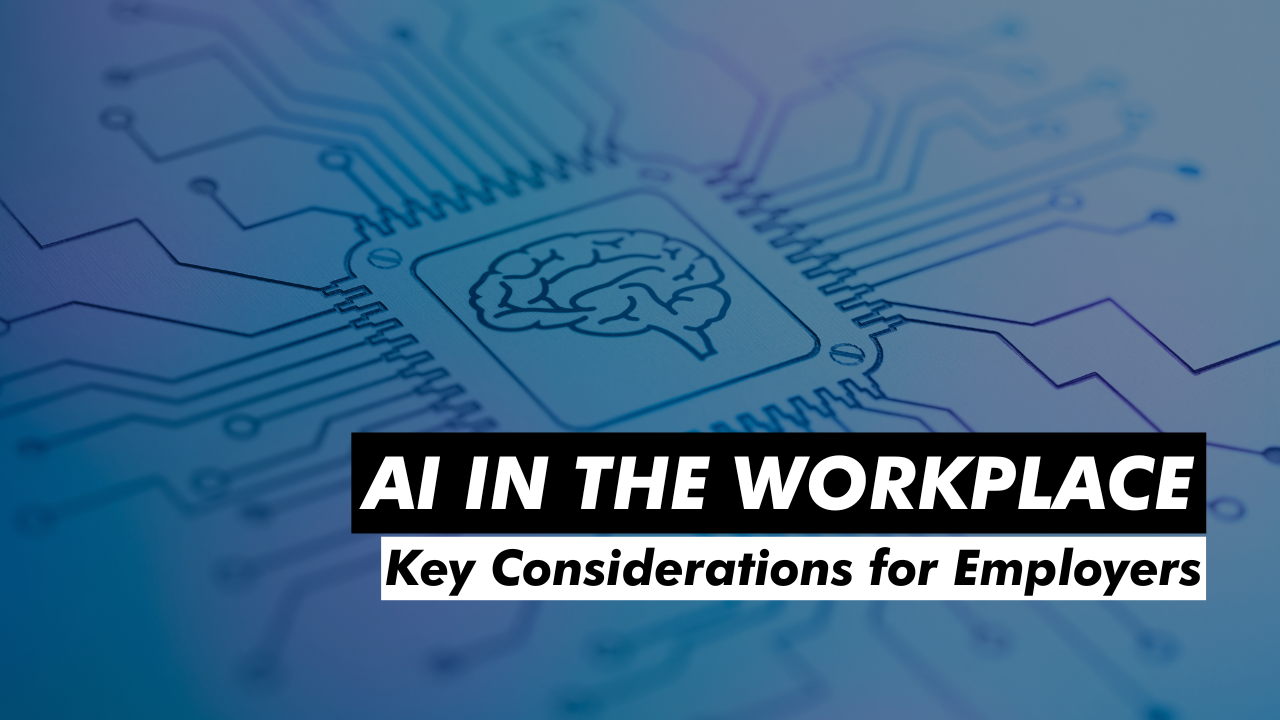
Artificial Intelligence in the Workplace: Key Considerations for Employers
As Artificial Intelligence continues to evolve, its integration into the workplace and hiring processes has become increasingly prevalent. Employers are leveraging AI to streamline operations, enhance decision-making, and improve efficiency. However, the use of AI in hiring also presents unique challenges and considerations that employers must address to ensure legal compliance, ethical integrity, and fair hiring practices.
Legal Compliance
Employers must navigate a complex legal landscape when implementing AI in hiring processes. The primary consideration is Anti-Discrimination Laws. Employers must ensure that AI systems do not result in discriminatory practices. The use of AI in hiring must comply with laws such as the Civil Rights Act, the Americans with Disabilities Act, and other relevant anti-discrimination statutes. Employers should regularly audit AI systems to identify and mitigate any potential biases.
Ethical Concerns
The ethical use of AI in hiring is paramount to maintaining trust and integrity. Employers should consider the following ethical concerns:
- Bias and Fairness: AI systems can inadvertently perpetuate biases present in historical data. Employers should ensure that AI algorithms are transparent and regularly tested for bias. Implementing diverse training datasets and involving human oversight can help mitigate these risks.
- Transparency and Accountability: Employers should be transparent about the use of AI in hiring processes. Candidates should be informed about how AI is used in their evaluation and have access to explanations of AI-driven decisions. Establishing accountability mechanisms is crucial to address any grievances or errors.
Best Practices for Implementing AI in Hiring
To harness the benefits of AI while minimizing risks, employers should adopt the following best practices:
- Conduct a Risk Assessment: Before implementing AI, conduct a thorough risk assessment to identify potential legal and ethical issues. This assessment should guide the development and deployment of AI systems.
- Involve Diverse Stakeholders: Engage a diverse group of stakeholders, including legal, HR, and IT professionals, in the design and implementation of AI systems. This collaborative approach can help identify and address potential biases and ethical concerns.
- Regular Audits and Updates: Continuously monitor and audit AI systems to ensure compliance with legal standards and ethical guidelines. Regular updates and improvements to AI algorithms can help maintain fairness and accuracy.
- Provide Training and Education: Educate employees and hiring managers about the capabilities and limitations of AI in hiring. Training should emphasize the importance of human oversight and the need to complement AI-driven insights with human judgment.
Potential Benefits and Risks
The use of AI in hiring offers several potential benefits, including increased efficiency, reduced time-to-hire, and enhanced candidate matching. However, employers must also be aware of the risks, such as:
- Bias: AI systems may inadvertently reinforce existing biases, leading to unfair hiring practices.
- Privacy Concerns: The use of AI involves the collection and analysis of personal data, raising privacy concerns that must be addressed.
- Overreliance on Technology: Excessive reliance on AI may lead to the undervaluation of human judgment and intuition in hiring decisions.
At a Glance
The integration of AI into the workplace and hiring processes presents both opportunities and challenges for employers. By prioritizing legal compliance, addressing ethical concerns, and adopting best practices, employers can leverage AI to enhance their hiring processes while ensuring fairness and integrity. As AI technology continues to evolve, ongoing vigilance and adaptation will be essential to maintaining responsible and equitable hiring practices.
